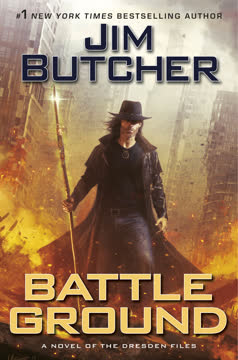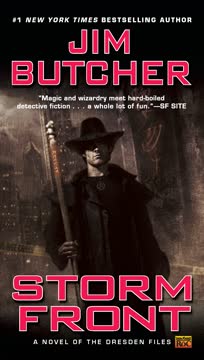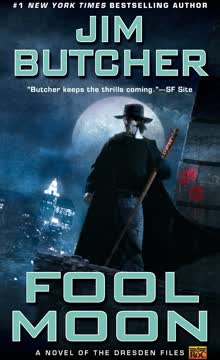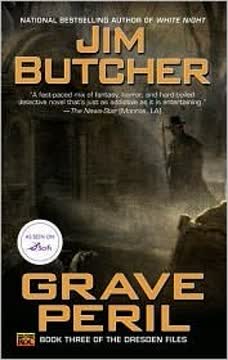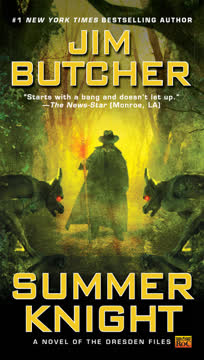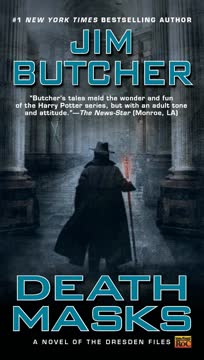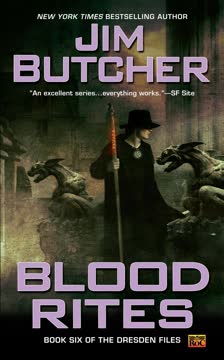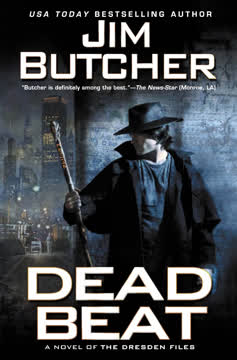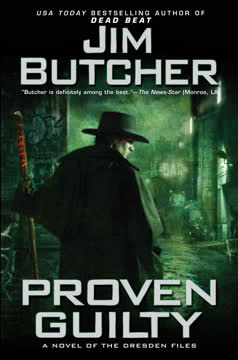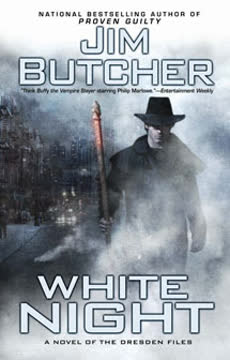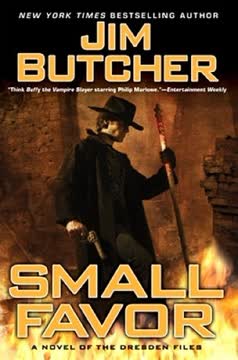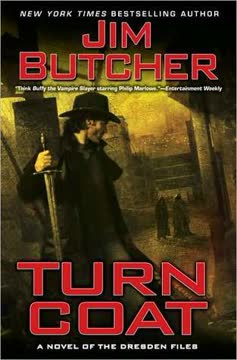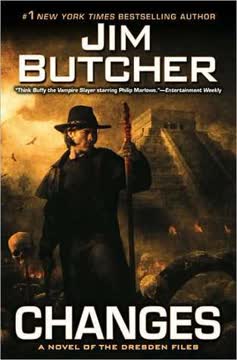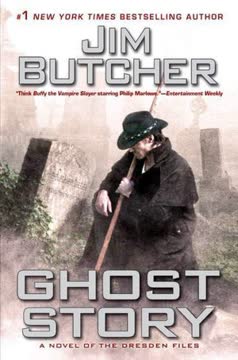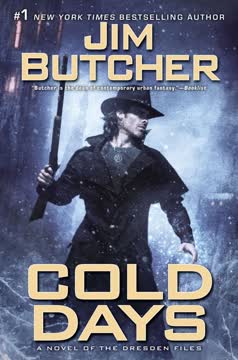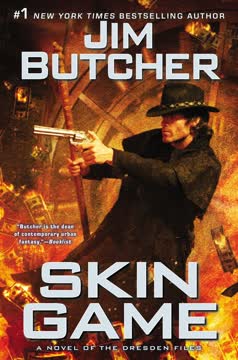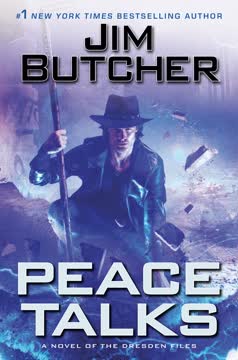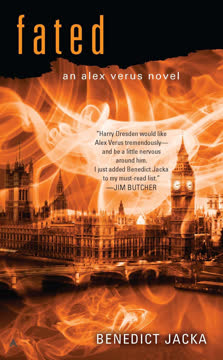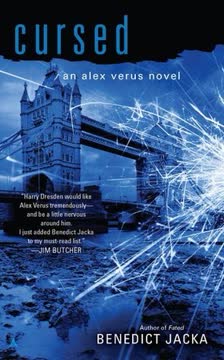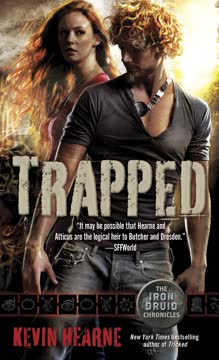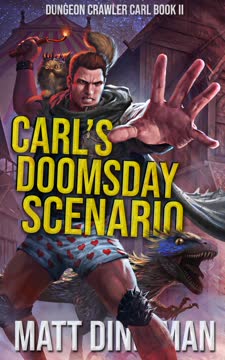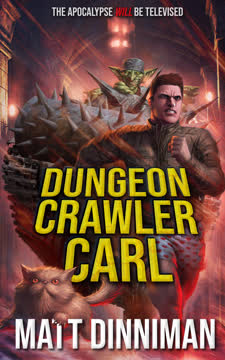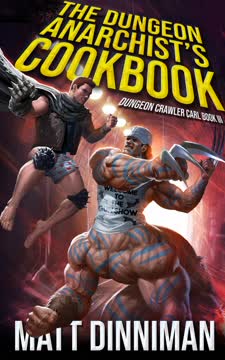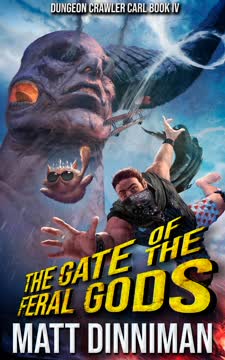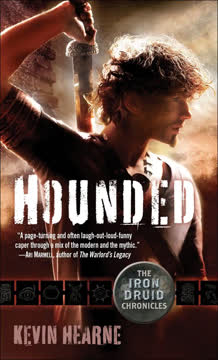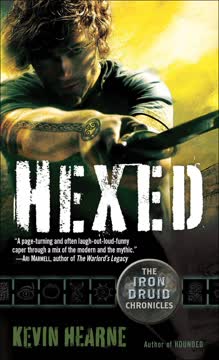Plot Summary
Midnight's Ominous Arrival
As midnight strikes, Harry Dresden races across Lake Michigan, aware that an apocalyptic threat looms over Chicago. The city faces annihilation at the hands of the Fomor, led by the mad goddess Ethniu, who wields a devastating supernatural weapon. Harry, alongside his steadfast ally Murphy, braces for the impending battle, knowing that the fate of Chicago hangs precariously in the balance. This witching hour, a time steeped in nightmares and fear, heralds the beginning of a night that will irrevocably alter everything.
Chicago's Desperate Defense
Upon reaching Chicago, Harry and his allies find a city engulfed in darkness and chaos. The police and citizens are on edge, with looting and fear spreading like wildfire. The Fomor's forces are already in position, ready to strike. Harry must rally the city's supernatural community, preparing them for the fight of their lives. The battle to defend Chicago is imminent, and every second is crucial as they brace for the onslaught.
Allies and Enemies Gather
Harry unites with a diverse group of allies, including the White Council, the Winter Court, and other supernatural factions. They convene at Castle Marcone, a fortress in the city's heart, to strategize their defense. As tensions simmer, old grudges and new alliances surface. Harry must deftly navigate these complex relationships while preparing for the inevitable confrontation with Ethniu and her formidable army.
The Battle for the City
The Fomor's forces, including monstrous Huntsmen and octokongs, launch a brutal assault on Chicago. Harry and his allies fight valiantly to hold the line, but the enemy's numbers are overwhelming. Amidst the chaos, Harry faces personal losses and the heavy burden of leadership. The battle for Chicago is fierce and unforgiving, with every street and building becoming a battleground in this epic struggle.
The Last Titan's Wrath
Ethniu, the Last Titan, enters the fray, wielding the Eye of Balor, a weapon of unimaginable destruction. Buildings crumble under its might, and the city's defenders are pushed to their limits. Harry realizes that stopping Ethniu is the only way to save Chicago. As the battle intensifies, he must confront the Titan and find a way to neutralize her threat before it's too late, knowing that the city's survival depends on his actions.
A Knight's Inner Struggle
In the battle's aftermath, Harry Dresden grapples with his emotions and the moral implications of his actions. Confronted by Sanya, a fellow Knight, Harry's rage nearly consumes him as he almost kills Rudolph, whom he blames for Murphy's death. Butters intervenes, reminding Harry of his humanity and the importance of restraint. This moment of clarity allows Harry to regain control, highlighting the internal struggle between his duty as the Winter Knight and his personal values.
The Titan's Final Stand
The climactic battle against Ethniu unfolds as Harry and his allies confront the Titan. Utilizing the Spear of Destiny, Harry manages to bind Ethniu, neutralizing her threat. The battle is fierce, with significant losses on both sides, but ultimately, the coalition prevails. Ethniu's defeat marks a turning point for Chicago, as the city begins to heal and rebuild. This chapter captures the intensity of the final confrontation and the triumph of good over evil.
A City Rebuilds and Reflects
In the wake of the battle, Chicago begins the long process of rebuilding. Harry and his allies reflect on the events, acknowledging the sacrifices made and the lessons learned. The city is forever changed, with its inhabitants more aware of the supernatural world. This chapter explores themes of resilience and hope, as the characters come to terms with their experiences and look toward the future.
Characters
Harry Dresden
Harry is the protagonist, a wizard tasked with defending Chicago from supernatural threats. As the Winter Knight, he wields significant power but struggles with the moral implications of his role. Throughout the battle, Harry faces personal loss and the burden of leadership, ultimately finding strength in his resolve to protect the city and its people.
Karrin Murphy
Murphy is a former police officer and Harry's close ally. Despite her injuries, she joins the fight to defend Chicago, demonstrating her bravery and determination. Her relationship with Harry is complex, marked by mutual respect and deep affection. Murphy's presence provides Harry with emotional support and a reminder of what he's fighting for.
Ethniu
Ethniu is the primary antagonist, leading the Fomor's assault on Chicago. Wielding the Eye of Balor, she poses a significant threat to the city and its defenders. Her motivations are driven by revenge and a desire to demonstrate her power. Ethniu's presence forces Harry and his allies to confront their greatest fears and push their limits.
Mab
Mab is the ruler of the Winter Court and Harry's patron. She is a powerful and enigmatic figure, guiding Harry in his role as the Winter Knight. Mab's strategic mind and vast resources are crucial in the battle against Ethniu. Her relationship with Harry is complex, marked by manipulation and a shared understanding of the stakes involved.
Carlos Ramirez
Ramirez is a fellow wizard and one of Harry's closest allies. He is dedicated to the White Council and the defense of Chicago. Despite his injuries, Ramirez remains a steadfast presence, offering support and guidance to Harry. His friendship is tested by the challenges they face, but his loyalty never wavers.
River Shoulders
River Shoulders is a Sasquatch and a powerful ally in the battle for Chicago. His strength and wisdom are invaluable assets, and he shares a deep bond with Harry. River's presence provides a sense of stability and reassurance amidst the chaos, and his actions demonstrate the importance of friendship and loyalty.
Marcone
Marcone, the Baron of Chicago, proves to be a valuable ally in the fight against Ethniu. His strategic acumen and willingness to protect the city demonstrate his commitment to maintaining order. Marcone's relationship with Harry is complicated, marked by mutual respect and underlying tension, setting the stage for future interactions.
Butters
Butters, wielding the Sword of Faith, plays a pivotal role in preventing Harry from succumbing to his darker impulses. His unwavering belief in Harry's humanity serves as a guiding light, reminding Harry of the importance of restraint and compassion. Butters' courage and determination are instrumental in the battle's outcome, solidifying his place as a key ally.
Plot Devices
The Eye of Balor
The Eye of Balor, wielded by Ethniu, represents the destructive potential of unchecked power. Its ability to level buildings and cause widespread devastation underscores the stakes of the battle. The Eye's presence forces Harry and his allies to confront their fears and unite against a common enemy, ultimately serving as a catalyst for their victory.
The Winter Knight's Mantle
The Winter Knight's mantle grants Harry significant magical abilities but also presents moral and ethical challenges. It represents the duality of power, offering both strength and temptation. Harry's struggle to control the mantle and use it for good is a central theme, highlighting the complexities of wielding power responsibly.
The Spear of Destiny
The Spear of Destiny is a powerful artifact used by Harry to bind Ethniu, neutralizing her threat. Its presence raises the stakes of the battle, symbolizing the potential for redemption and the power of choice. The Spear's role in the story highlights the importance of wielding power responsibly and the consequences of one's actions.
Analysis
"Battle Ground" by Jim Butcher is a gripping narrative that explores the complexities of power, the weight of leadership, and the enduring strength found in unity. Through Harry Dresden's journey, the story delves into the moral and ethical challenges of wielding immense power, emphasizing the importance of restraint and responsibility. The battle for Chicago serves as a backdrop for exploring themes of sacrifice, loss, and resilience, as characters confront their fears and push their limits. The novel underscores the significance of alliances and the strength found in diversity, highlighting the power of unity in overcoming seemingly insurmountable odds. Ultimately, "Battle Ground" is a testament to the human spirit's capacity for hope and renewal, even in the face of overwhelming darkness.
Last updated:
FAQ
0. Synopsis & Basic Details
What is Battle Ground about?
- Chicago's Last Stand: Battle Ground plunges Chicago into an apocalyptic war as the Fomor, led by the ancient Titan Ethniu wielding the devastating Eye of Balor, launch a full-scale invasion. Harry Dresden, the Winter Knight, must rally a desperate coalition of Accorded Nations and mortal defenders to protect his city from utter annihilation.
- Unlikely Alliances Forged: The narrative follows Harry as he navigates complex alliances with figures like Queen Mab, Baron Marcone, and the White Council, all while facing overwhelming odds and the moral compromises demanded by total war. The story is a relentless, action-packed struggle for survival against a seemingly invincible foe.
- A World-Changing Conflict: Beyond the immediate battle, the book explores the irreversible shift in the relationship between the mortal and supernatural worlds. The sheer scale of destruction ensures that the veil between them will be irrevocably torn, forcing humanity to confront the hidden realities of their world.
Why should I read Battle Ground?
- Relentless, High-Stakes Action: Readers seeking an adrenaline-fueled, non-stop fantasy epic will find Battle Ground delivers on its promise of an all-out war. The book is a masterclass in escalating tension and large-scale magical combat, pushing Harry Dresden and his allies to their absolute limits.
- Profound Character Development: Beyond the explosions, the novel offers deep psychological insights into Harry Dresden, exploring the heavy cost of power and leadership. Witness Harry's internal struggle with the Winter Knight's mantle and his unwavering commitment to protecting the innocent, even at immense personal cost.
- Irreversible World-Building Shifts: This installment fundamentally alters the landscape of the Dresden Files, setting the stage for future conflicts and a new era where the supernatural is no longer hidden. It's essential reading for understanding the future direction of the series and the profound consequences of Harry's choices.
What is the background of Battle Ground?
- Immediate Aftermath of Peace Talks: Battle Ground picks up directly after the events of Peace Talks, with the Accorded Nations having just convened in Chicago. Ethniu's declaration of war and the Fomor's immediate assault mean there's no time for further diplomacy, forcing an immediate, desperate defense.
- Ancient Mythological Roots: The conflict is deeply rooted in ancient mythology, particularly Irish folklore, with Ethniu being a Titan from the Fomorians, ancient enemies of the Tuatha Dé Danann (proto-Sidhe). This intertextual background elevates the stakes, framing the battle as a clash of primordial forces.
- Chicago as a Nexus: The city of Chicago itself serves as a crucial backdrop, not just a setting. Its unique blend of mortal population, hidden supernatural communities, and strategic importance (e.g., Lake Michigan, Millennium Park) makes it the ideal, albeit tragic, battleground for this world-altering conflict.
What are the most memorable quotes in Battle Ground?
- "Defend Chicago.": This terse command from Harry to Murphy in Chapter 1 encapsulates his unwavering resolve and the singular, desperate mission of the night. It defines the core theme of protection and sacrifice in the face of overwhelming odds, highlighting Harry's commitment to his home.
- "Some things should hurt.": Harry's internal realization in Chapter 17, amidst the horrors of the burning city, marks a pivotal moment in his psychological journey. It signifies his conscious choice to embrace pain and grief as a testament to his humanity, refusing the Winter mantle's numbing comfort. This quote is central to understanding Harry Dresden's motivations and his struggle with the Winter Knight's mantle.
- "What's the point of free will, if not to spit in the eye of destiny?": Harry's defiant question to Mab in Chapter 24, echoing a sentiment from a character he rarely agrees with, perfectly captures his rebellious spirit and his refusal to be a mere pawn in cosmic games. This quote speaks to the overarching themes of choice, fate, and individual agency in the face of overwhelming power.
What writing style, narrative choices, and literary techniques does Jim Butcher use?
- First-Person, Hard-Boiled Narration: Butcher maintains Harry Dresden's signature first-person perspective, infusing the narrative with his sardonic wit, internal struggles, and immediate, visceral reactions to the unfolding chaos. This narrative choice immerses readers directly into Harry's experience, enhancing the emotional impact of the battle.
- Escalating Stakes & Pacing: The novel employs a relentless, breakneck pace, mirroring the urgency of the apocalyptic conflict. Butcher uses short, action-packed chapters and constant threats to create a sense of overwhelming pressure, ensuring that the reader feels the same desperation as the characters.
- Mythological Allusion & Subversion: Butcher masterfully weaves in elements from various mythologies (Norse, Irish, Christian) but often subverts expectations. Characters like Odin/Vadderung and the Knights of the Cross are presented with fresh, often gritty, interpretations, adding depth and complexity to the familiar archetypes and enriching the world-building of Battle Ground.
1. Hidden Details & Subtle Connections
What are some minor details that add significant meaning?
- Mac's Placard from the Cross: The seemingly simple wooden sign from the Cross, bearing Mac's blood, acts as a powerful threshold, protecting the Paranetters. This detail, introduced in Chapter 3, subtly confirms Mac's divine connection (intellectus) and his role as a guardian, hinting at his true nature as a former angel or similar divine being, a significant piece of Battle Ground lore.
- Mab's "Christmas Spirit": Mab's unexpected appearance on Christmas Eve, bringing a gift for Maggie and claiming Christmas "falls within the realm of Winter," as seen in Chapter 36, is a subtle but profound detail. It hints at the ancient, often forgotten, connections between Winter and traditional human holidays, suggesting a deeper, more complex relationship than mere coldness and death, and revealing a hidden aspect of Mab's character.
- The Unicorn's Eye-less Nature: The description of Mab's unicorn in Chapter 18, noting its lack of eyes and reliance on other senses, is a subtle detail that symbolizes Winter's inherent nature. It suggests a perception unclouded by glamour or superficial beauty, focusing instead on raw power and truth, aligning with Winter's brutal honesty and its ability to see through deception, a key element in understanding Battle Ground symbolism.
What are some subtle foreshadowing and callbacks?
- Harry's "Sledgehammer" Self-Assessment: In Chapter 4, Harry describes himself as "the dumb kid with the sledgehammer from his father's toolshed" compared to the Senior Council's "sword-saint samurai." This self-assessment subtly foreshadows his eventual role in the battle, where his brute force and direct approach (like using the Spear of Destiny) are precisely what's needed to overcome Ethniu's seemingly impenetrable defenses, a crucial piece of Battle Ground analysis.
- Marcone's Long-Term Thinking: Marcone's conversation with Harry in Chapter 35, where he states he's "beginning to learn what it means to think in the long term," subtly foreshadows his continued rise in power and influence. His decision to yield the Eye of Balor to Harry, despite his desire for it, demonstrates a strategic foresight that will undoubtedly impact future events in the Dresden Files, highlighting Marcone's motivations.
- Molly's "Building an Army": Molly's cryptic absence and busy schedule, mentioned in Chapter 16, are later revealed in Chapter 29 to be her "building an army" of Winter Fae. This callback highlights her growing power and strategic acumen as the Winter Lady, demonstrating her proactive approach to her duties and her capacity for large-scale magical warfare, a significant development for Molly Carpenter's character.
What are some unexpected character connections?
- River Shoulders as Listens-to-Wind's Mentor: The revelation in Chapter 13 that River Shoulders "taught old Listens-to-Wind" is an unexpected connection, flipping the perceived hierarchy of power and wisdom. It positions the Sasquatch as an ancient, profound source of magical knowledge, deepening his character and the history of magic within the White Council, a surprising detail in Battle Ground lore.
- Marcone's Thorned Namshiel Identity: The shocking reveal in Chapter 33 that Marcone is the bearer of Thorned Namshiel, a Fallen Angel, is a massive, unexpected character connection. This explains his sudden magical prowess and strategic depth, transforming him from a mere mortal crime lord into a formidable supernatural player with infernal power, profoundly altering his role and motivations in the Dresden Files.
- Mab's "Investment" in Harry: Mab's repeated references to Harry as her "investment" and her pride in his defiance (Chapter 18, 36) reveal an unexpected, almost parental, connection. While still manipulative, it suggests a deeper, long-term plan for Harry beyond simple servitude, hinting at her true motivations and the unique nature of their bond, a key aspect of Harry Dresden's relationship with Mab.
Who are the most significant supporting characters?
- Detective Bradley: Initially appearing as a minor antagonist, Detective Bradley's unwavering sense of duty and his eventual acceptance of the supernatural reality (Chapter 20) make him a significant supporting character. His personal sacrifice to protect children and his quiet courage highlight the resilience of ordinary mortals in extraordinary circumstances, offering a grounded perspective amidst the chaos of Battle Ground.
- Goodman Grey: The half-Fomor shapeshifter, hired by Harry to protect Justine, proves his loyalty and competence in Chapter 35. His dedication to his contract, even against Lara's forces, underscores the complex moral landscape of the supernatural world and his unique code of honor, making him a valuable, if morally ambiguous, ally.
- Randy, the Volunteer: Randy, a nervous volunteer who initially questions Harry's authority (Chapter 21), becomes a symbol of the ordinary citizens who rise to the occasion. His personal motivation (his newborn daughter in the hospital) and his eventual resolve to fight represent the collective spirit of Chicago's defenders, emphasizing the themes of community and sacrifice in Battle Ground.
2. Psychological, Emotional, & Relational Analysis
What are some unspoken motivations of the characters?
- Mab's Calculated Vulnerability: Mab's decision to make herself bait for Ethniu (Chapter 16), exposing herself to the Eye of Balor, is driven by an unspoken motivation to gauge Ethniu's true power and weaknesses. This strategic sacrifice, while seemingly reckless, is a calculated risk to gather crucial intelligence for the final binding, showcasing Mab's ruthless pragmatism and strategic genius in Battle Ground analysis.
- Marcone's Quest for Legitimacy: Beyond simply protecting his territory, Marcone's fierce defense of Chicago (Chapter 9, 32) is subtly motivated by a desire for recognition and legitimacy within the supernatural world. His actions, including arming civilians and leading the charge, are a bid to solidify his position as the Baron of Chicago and earn respect from the Accorded Nations, revealing deeper layers to Marcone's motivations.
- Harry's Need for Redemption: Harry's relentless drive to protect Chicago, even to the point of self-destruction, is fueled by an unspoken need for redemption for past failures and losses. The death of Murphy, in particular, intensifies this, pushing him to embrace the destructive aspects of the Winter Knight's mantle while simultaneously fighting to retain his humanity, a core aspect of Harry Dresden's psychological complexity.
What psychological complexities do the characters exhibit?
- Harry's Mantle-Induced Rage: Harry's struggle with the Winter Knight's mantle is a central psychological complexity. In Chapter 22, after Murphy's death, the mantle's influence nearly leads him to brutally murder Rudolph, showcasing its capacity to override his moral compass with pure, cold fury. His subsequent shame and Butters' intervention highlight the constant battle for his soul, a critical element of Harry Dresden's character analysis.
- Ethniu's Ancient Trauma & Hubris: Ethniu exhibits a complex psychology rooted in millennia of imprisonment and a deep-seated desire for revenge. Her hubris, evident in her underestimation of mortals and her need to "be proven correct" (Chapter 34), stems from her elemental nature and ancient power, making her vulnerable to psychological manipulation despite her immense strength, a key insight into Ethniu's motivations.
- Molly's Dual Nature as Winter Lady: Molly Carpenter's psychological complexity is highlighted by her transformation into the Winter Lady. While she retains her compassion and loyalty to Harry, her actions (like building an army of "kids" and her "chill, hungry laughter" in Chapter 32) reveal a growing comfort with Winter's brutal pragmatism and a chilling detachment, showcasing the profound impact of her new role on her psyche.
What are the major emotional turning points?
- Murphy's Death and Harry's Descent: The most significant emotional turning point is Karrin Murphy's death in Chapter 22. This event shatters Harry's emotional defenses, pushing him to the brink of succumbing to the Winter mantle's destructive impulses and nearly leading him to commit murder. It marks a profound loss that reshapes Harry's immediate motivations and future trajectory, a critical moment in Battle Ground emotional analysis.
- Butters' Intervention and Harry's Redemption: Butters' courageous stand against Harry in Chapter 23, reminding him of his humanity and his daughter, serves as a crucial emotional turning point. This intervention pulls Harry back from the abyss of pure hatred, allowing him to embrace his pain while reaffirming his commitment to being a "good man," highlighting the power of friendship and faith in Harry Dresden's character arc.
- Mab's Moment of Gratitude: Mab's unexpected "shiver" of gratitude when Harry thanks her for fighting for Chicago (Chapter 36) is a subtle but powerful emotional turning point. It reveals a hidden layer of vulnerability and perhaps a flicker of her lost humanity, suggesting that even the Queen of Air and Darkness is not entirely immune to genuine human emotion, offering a rare glimpse into Mab's character.
How do relationship dynamics evolve?
- Harry and Marcone's Adversarial Respect: The relationship between Harry and Marcone evolves from bitter rivalry to a grudging, almost symbiotic, adversarial respect. Their collaboration in defending Chicago and their final confrontation over the Eye (Chapter 35) solidify a dynamic where they are both opponents and necessary allies, each pushing the other to greater heights, a complex relationship dynamic in Battle Ground.
- Harry and Molly's Shifting Mentorship: Harry and Molly's relationship shifts from mentor-apprentice to one of more equal footing, albeit with Molly now holding significant power as the Winter Lady. Molly's strategic independence (building her own army) and her willingness to challenge Harry (Chapter 36) demonstrate her growth, while Harry's continued concern for her humanity underscores their enduring bond, a key evolution for Molly Carpenter's character.
- Harry and the White Council's Severance: The relationship between Harry and the White Council reaches its breaking point, culminating in his excommunication (Chapter 36). This severance, driven by the Council's fear of his power and alliances, marks a definitive end to his formal ties, forcing Harry to forge his own path and redefine his role as the Wizard of Chicago, a major development in Harry Dresden's character arc.
3. Interpretation & Debate
Which parts of the story remain ambiguous or open-ended?
- The Fate of Chandler and Other Wardens: The ultimate fate of Warden Chandler, who is sent through a "gate" by Drakul (Chapter 12), remains ambiguous. While Harry assumes he's "gone," the nature of the gate and the lack of a definitive death leaves his return or eventual status open to interpretation, a lingering question in Battle Ground analysis.
- The Long-Term Impact of the Veil's Tearing: The novel explicitly states that the mortal world can no longer ignore the supernatural, but the precise long-term consequences of this "unraveling of all things" (Chapter 35) remain open-ended. The extent of humanity's adaptation, the rise of new factions, and the future of the Accorded Nations in this new reality are left for future stories to explore, a major thematic ambiguity.
- Nemesis's True Goals and Reach: While Nemesis (He Who Walks Beside) is identified as the entity possessing Justine (Chapter 35), its ultimate goals beyond "the unraveling of all things" and its full reach within the supernatural world remain largely ambiguous. The extent of its influence and its specific plans for Harry and his child are left as a terrifying, open-ended threat for the series.
What are some debatable, controversial scenes or moments in Battle Ground?
- Harry's Attempted Murder of Rudolph: Harry's near-murder of Rudolph in Chapter 23, fueled by grief and the Winter mantle's influence, is highly controversial. Readers debate whether Harry's actions were justified given Rudolph's culpability in Murphy's death, or if it represents a dangerous moral slide for the protagonist, highlighting the dark side of Harry Dresden's motivations and the mantle's corrupting power.
- Mab's Forced Marriage Proposal: Mab's declaration of Harry's impending marriage to Lara Raith (Chapter 36), presented as a "binding alliance" and a "duty," sparks debate about Harry's free will and Mab's manipulative nature. This controversial moment questions the true nature of Harry's service to Winter and the extent to which his personal life is dictated by political necessity, a key point in Harry Dresden's character analysis.
- The White Council's Excommunication of Harry: The White Council's unanimous vote to excommunicate Harry (Chapter 36), citing his "murder" of Fomor servants and his alliances, is a debatable decision. Many readers argue it's a hypocritical and short-sighted move, given Harry's pivotal role in saving Chicago, while others see it as a necessary measure to maintain the Council's integrity and the Laws of Magic, a controversial moment for the White Council's actions.
Battle Ground Ending Explained: How It Ends & What It Means
- Ethniu's Binding and Demonreach's Role: The ending of Battle Ground sees Harry Dresden, with the aid of Marcone and Odin's intervention, successfully bind Ethniu using the Spear of Destiny. He then casts the bloodied crystal, containing Ethniu's essence, into Lake Michigan, where Demonreach (Alfred) pulls her into its prison. This signifies Harry's ultimate victory over the Titan, but also highlights the immense power he now wields as the island's Warden, a crucial aspect of Battle Ground ending explained.
- The Irreversible Tearing of the Veil: The battle's aftermath reveals that the supernatural world can no longer remain hidden from mortals. The widespread destruction and the sheer number of witnesses mean that humanity is now aware of the hidden forces at play. This "unraveling of all things" fundamentally changes the Dresden Files universe, setting the stage for a new era of open conflict and interaction between mortals and magic, a major thematic conclusion of Battle Ground.
- Harry's New Path and Personal Cost: Harry is excommunicated from the White Council but gains a new home (Marcone's castle) and a renewed sense of purpose as the "Wizard of Chicago." His personal losses, particularly Murphy's death, leave him deeply scarred but also resolute. The ending emphasizes Harry's commitment to building "something worth fighting for" (Chapter 36), even as he faces new threats (Nemesis, Mab's marriage plot) and the heavy burden of his power, defining Harry Dresden's motivations and future in the series.
Review Summary
Battle Ground receives mostly positive reviews, with praise for its epic action sequences and character development. Some criticize the relentless pacing and exhausting battle scenes. Readers appreciate the emotional impact and plot twists, particularly regarding major character deaths. The book is seen as a turning point in the series, with significant changes to the story's universe. While some fans express disappointment with certain plot choices, most agree that it's an ambitious and satisfying continuation of the Dresden Files.
The Dresden Files Series
Similar Books
Download PDF
Download EPUB
.epub digital book format is ideal for reading ebooks on phones, tablets, and e-readers.
